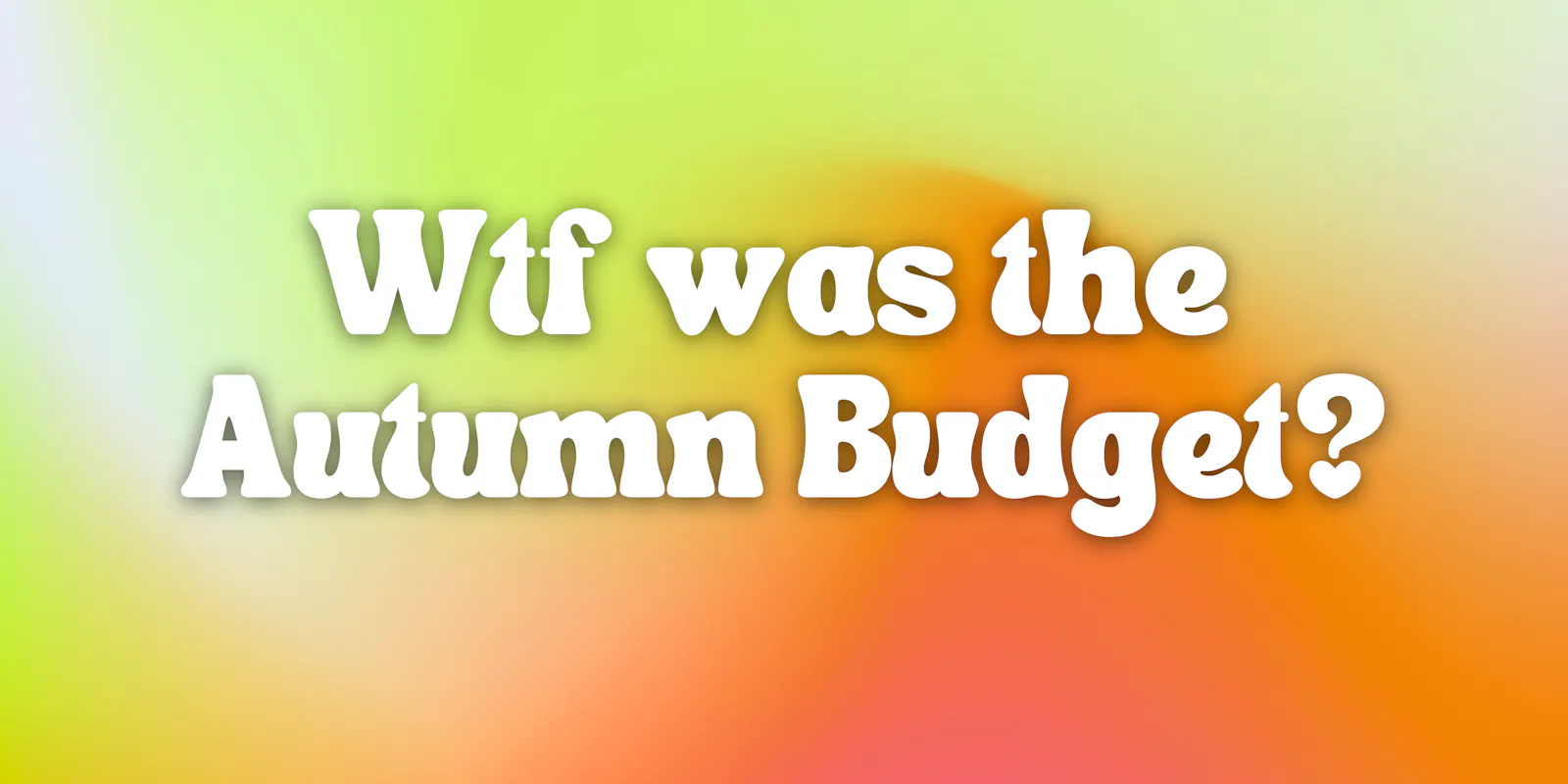WTF: Is Changing in the New Tax Year
On March 15, the UK Government announced its Spring Statement (Öffnet in neuem Fenster) (also known as the Spring Budget) which is an annual announcement made by the Chancellor of Exchequer (which is currently Jeremy Hunt) regarding the financial health and future plans of the economy. With a little help from our accountant and some internal research, we’ve put together some key points of the biggest changes for freelancers and business owners.
We’re also going to recap some of the key parts from the previous Autumn budget, as many of these changes are only taking effect as of this new tax year on April 6, and let’s be honest, so much has happened since it was annouced that we wouldn’t blame you if you’ve forgotten everything or have no clue what’s going on.
Additionally, we thought this piece was too important to shield behind a paywall, so it’s also available for all our newsletter subscribers not currently on a membership plan! However, please do consider joining our Learner Platform membership to support BRICKS' independent publishing.
Warning: The below information is merely general guidance and should not be relied upon as formal financial advice. We recommend you consult a professional before taking any action in relation to the points discussed in this article.
Before we get into the depths of it, here are some of the biggest points;
Corporation Tax rate is going up from 19% to 25%
If you earn £125,140 or more, you now pay 45% Income Tax
You can now only earn up to £1,000 in dividends tax-free instead of £2,000
IHT, Income Tax and NI bands are frozen

Let's recap! Here’s some of the key things we picked out;
Corporation Tax Rate Increase
One for the business owners. From 1 April 2023, Corporation Tax will rise from 19% to 25% for companies with profits exceeding £250K. Companies with profits under £50K will continue to pay 19%.
However, companies with profits in between £50K and £250K will pay 26.5% on those profits through taper relief (with the first £50K at 19%). Essentially, this means from £50K to £250K you'll get closer to paying an overall tax rate of 25%.
Dividend Allowance
Important for any small business owners who are registered as company directors, the tax-free dividend allowance will be reduced from £2,000 to £1,000 from April 2023, and to £500 from April 2024.
Income Tax Thresholds
Income Tax and National Insurance contributions thresholds will be fixed at their current rates until April 2028. The government will legislate for the income tax measures in Autumn Finance Bill 2022, and NICs changes through secondary legislation in early 2023.
However, the Income Tax additional rate threshold (ART) will be lowered from £150,000 to £125,140 from 6 April 2023. The ART for non-savings and non-dividend income will apply to taxpayers in England, Wales, and Northern Ireland but not Scotland. The ART for savings and dividend income will apply UK-wide.
National Insurance Secondary Threshold
The National Insurance contributions secondary threshold will be fixed at £9,100 from April 2023 until April 2028. The Employment Allowance will mean the smallest employers will not be affected.
Reformation of Audio-Visual Creative Reliefs
The government has launched a consultation on a series of proposals that will go further to incentivise and support the growth of the audio-visual sectors, ensuring these highly skilled industries continue to thrive in the UK. For those working in film, video, radio or podcasting, this could be of particular interest and more information can be found here. (Öffnet in neuem Fenster)
Taxation of Electric Vehicles (Road Tax)
If you're a driver, from April 2025, electric cars, vans and motorcycles will begin to pay Vehicle Excise Duty (VED), in the same way as petrol and diesel vehicles.
VAT Threshold
The VAT registration and deregistration thresholds will be maintained at the current levels of £85,000 for an additional two years from 1 April 2024.
.png?auto=compress&w=800&fit=max&dpr=2&fm=webp)
Pensions
The annual tax-free pension allowance increased from £40,000 a year to £60,000, allowing people to contribute more within the year. Hunt has completely scrapped the lifetime pension allowance of £1,073,100. They hope this will discourage early retirement (more on this later) especially from NHS doctors.
Childcare for working Parents
There’s a new policy to make free childcare for parents of children under 5 years old. From April 2024, parents of 2-year-olds (that fit the criteria and work at least 16-hours per week) can claim 15 free hours per week. Other criterias may apply but it’s a good start and there are further allowance changes in September 2024 and again in September 2025. Read more about that here (Öffnet in neuem Fenster).
Returning to work
Hunt said that there are plans to get the early retirees, over 50s, back to the office. Apparently, 6.6 million working-aged adults aren’t working right now for a multitude of reasons. Congrats if you do have the luxury of retiring early, regardless the government is keen to get you back to your desk, unfortunately.
If you'd like to know more and have some time this weekend, you can read the full Spring Statement (Öffnet in neuem Fenster) and we'll be back with you next week!

